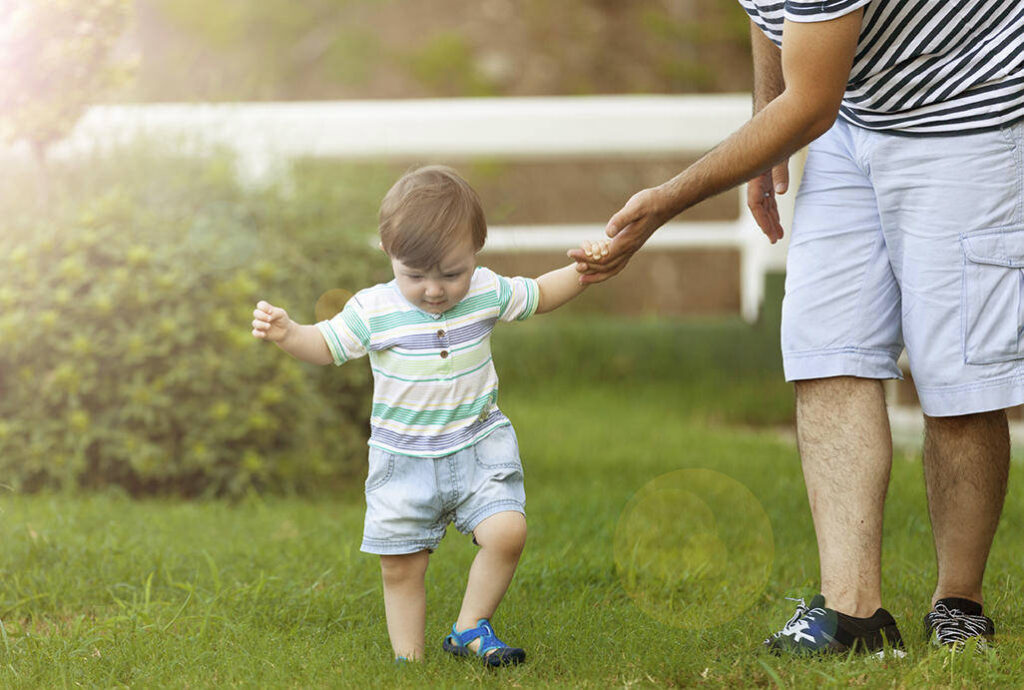When do babies start walking? From the very first crawl to that unforgettable moment when your little one takes their first steps, every parent knows there’s no greater joy than watching them gain independence! Get ready for this incredible milestone in baby development with When Do Babies Start Walking: The Journey to Independence – an informative guide packed full of helpful tips and advice. With its insight into developmental milestones, encouragement techniques, and more you’ll be fully equipped as you embark on a journey together toward freedom!

Navigating your baby’s first steps can be a big moment for parents. When do babies start walking? This book is here to help make the experience as smooth and stress-free as possible, with useful advice designed especially for new moms and dads! Packed full of helpful tips, it will provide you with all the guidance needed to ensure that this milestone journey goes off without a hitch.
Baby’s Journey to Independence
Babies embark on a remarkable journey of growth as they explore their environment and learn how to move throughout the world. With each milestone, these tiny humans become more self-sufficient until eventually achieving total independence – making way for great accomplishments ahead!
Physical Development
As parents, you have the power to give your little one the best start in life. Support their development by providing physical activities that will help build motor skills and strength – this is key for when they take those first steps! Genetics play a part too but through engaging experiences like age-appropriate games or toys, it’s possible to positively boost growth leading up to an independent walker!
Muscle Strength
Becoming a toddler involves much more than simply putting one foot in front of the other! Before taking those first steps, little ones need to build up their leg and core strength. With this foundational muscle power providing support for balance and movement control, babies are ready to take on the world – walking tall with pride!
Balance
As your little one approaches their first birthday, two fascinating developments are beginning to take place: building balance and learning how to walk. Not only does this give them a newfound freedom of mobility; but it also aids in coordination and the ability to think ahead!

Cognitive Development
Understanding of Their Surroundings
As a baby’s first steps toward exploring the world, their visual and auditory senses are essential. But parents can also help to encourage understanding by creating stimulating opportunities for little ones to learn more about what lies beyond them! Through exploration and activities like pointing out new sights or playing different games with your child, you’ll be aiding in their development of an ever-broadening view of life around them.
Babies’ Cognitive Ability to Interpret Signals
From the moment they enter this world, babies are already absorbing information at a remarkable rate. They have an impressive ability to interpret non-verbal communication and use these cues as building blocks for their cognitive growth and forming relationships – even before most of us can read facial expressions!
Environmental/Social Development
Every baby’s first year is a crucial period for their development, as the environment and social connections they form to set up fundamental building blocks that can influence how they grow both physically and mentally. From learning mobility to fostering relationships with those around them – these important experiences lay down key foundations for later stages of life!
As a parent, you hold tremendous power – the ability to foster your baby’s growth and development. Making sure their environment is safe yet stimulating sets them up for success! From offering plenty of chances for physical activity to giving age-appropriate toys featuring exciting shapes, sizes & colors – these steps can empower your infant in all aspects of life.
Encouragement
A baby’s first steps are a momentous milestone in their life, marked by endless encouragement from family and doctors. As they approach this exciting new discovery of the world around them, babies have plenty of support to guide them on their journey.
Providing a Safe Environment
Babies require a loving and safe environment to grow, thrive, and explore. Surrounded by supportive adults in an area free of any hindrances provides infants with the encouragement needed for their journey towards independence! With your steady guidance at hand, babies will be ready to take those first steps toward autonomous exploration before you know it.
When Do Babies Start Walking?
Average Age
Baby’s first steps are an exciting milestone! While age can vary, most little ones will start taking their inaugural toddles between 12 and 18 months old. Factors such as development tempo and genetics contribute to individual timelines for this joyous rite of passage.
Factors Affecting Walking
When it comes to hitting the ground running, no two babies are alike! Some take their first steps with ease while others may need a bit more help and encouragement. A variety of factors can play into when your little one is ready for independent ambulation – from genetic predisposition to extra guidance along the way. Every milestone should be celebrated as you watch them grow up before your eyes!
Conclusion
Witnessing a baby’s first steps is an amazing moment! It marks the start of their journey to independence as babies begin to gain confidence in themselves and explore. Not only does it represent physical development but also emotional growth, allowing them more opportunities for motor skill building while they continue along their path to greater autonomy.
Parents, with the right environment and a little bit of encouragement, you can help lead your baby’s first steps toward independence! Patience is key here – but never forget to get creative. Our blog provides helpful tips that will guide you on this journey – let’s pass it along to those who we love so they too can watch their babies take off running! You can also visit our blog section for more tips and recommendations.
Reading suggestions:


